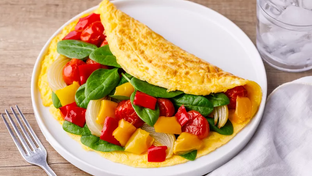Unprocessed (or natural) foods are edible parts of plants (seeds, fruits, leaves, stems, roots) or of animals (muscle, offal, eggs, milk). Other foods may need minimal processing designed to preserve natural foods, to make them suitable for storage, or to make them safe or more pleasant to consume. Examples of this include fermentation, pasteurization and adding salt, vinegar, oil or sugar to natural foods.
Ultra-processed foods, on the other hand, are formulations of many 'faux' ingredients, mostly for exclusive industrial use, that result from a sequence of industrial processes (hence ultra-processed) and may not include any natural food components whatsoever. The main purpose of these processes is to create highly profitable food and drink products with low cost ingredients, long shelf-lives and highly addictive taste/texture profiles.
Below are some red flag words to look out for in the ingredients list of your supermarket products.

Post adapted from information in presentation 'Ultra Processed Foods' by Dr. Priscila Machado, PhD, Research Fellow, School of Exercise and Nutrition Sciences, Deakin University





Comments